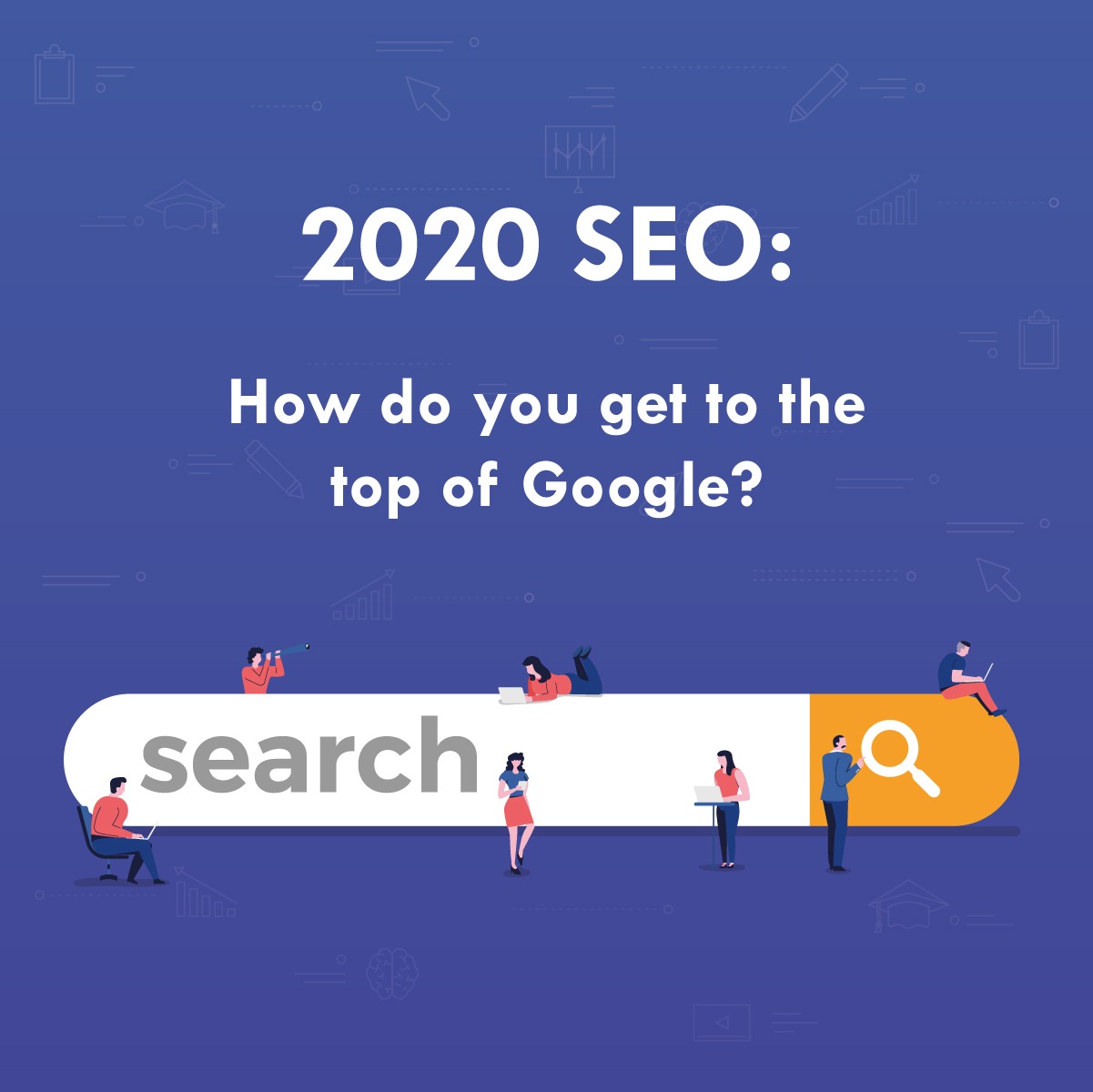
“How do you get to the top of Google?” – the million dollar question, and one that is often asked to us as a Digital Marketing Agency. Whatever the size of your business, a visible website that appears high up on search engine results is critical, and can be make or break for your company. A strong organic presence online is key to attracting and engaging with both new and existing customers. According to backlinko.com, the first result in Google’s organic search results has an average click through rate of 31.7%. Furthermore, it is thought that in excess of 90% of traffic clicks through from the first page of Google results. You can see where we’re going with this… if you have a website, whether you’re a one-man-band, or a company of 50,000 employees, your SEO strategy needs attention.
So what is SEO and how can you get more leads from new customers in Google?
What is SEO Marketing?
Search engine optimisation or SEO is, to put it simply, understanding Google’s way of determining whether or not your page is the most helpful answer to the search query that the user has inputted, and then acting on the information.
The Google algorithm uses more than 200 ranking factors in order to decide if a website should appear on the first page or the 100th. In 2020 User Experience is probably the single most important ranking factor for your website. Although technical SEO – which uses techniques such as adding the right meta descriptions and H1 titles – is still important, in 2020, Google is increasingly looking for evidence that you are ticking the below boxes:
– Great quality content that is written by somebody that has an authority on the subject… not only answering directly the search query that the user has inputted into Google, but also considered what the user might ask next and answered those questions in addition.
– Fast loading times and a clear customer journey around the site with simple navigation and formatting, evident calls to action and great use of imagery.
– Minimal pogo-sticking. This means that users do not go to your website, have a quick read and then click on to the next result down in the search engine results as your page was not useful to them. This is more important for SEO than the bounce rate. Actually a bounce isn’t always negative – if users bounce from your website, sometimes it’s because they have found exactly what they need straight away.
From a technical perspective your website must meet the technical requirements in terms of security, tagging, coding, indexing, links and other criteria linked to how search engines work and from a content side your website should be relevant, authoritative and be relevant to what users are searching for.
Why Do You Need a Strong Organic Presence on Google?
Whether it is brand awareness, sales or customer engagement – the aim of your website is to attract relevant visitors and give them a positive online experience which will ultimately lead to more sales for your company. Granted, it takes time and resource to do SEO well – it’s a medium to long-term strategy, but the postitive news is that the increase in traffic that you will naturally achieve after addressing your SEO can be measured down to the individual keyword – it’s completely quantifiable.
If you can understand more about your Organic users, the added benefit is that this information can also contribute to your business strategy. If your company only sells white trainers, but your organic users are only interested in an article that you wrote 4 years ago about pink trainers, it might be time to change the direction of the business. This is a very simple example, we know, but can you relate this analogy to your company and products?
We must mention that there is, of course, the option to pay for the top results on Google using another method – Paid Search, commonly known as Pay-Per-Click. This is more of a quick-fix and can potentially be used to gain competitive advantage in the short term. When these two channels are used effectively in tandem, your company will reap the rewards!
How Do You Improve Your SEO?
We already touched on some of the most important ranking factors as we go into 2020. There are too many techniques to go through in one article, but some of the other important ranking factors are below:
14 SEO Tips to Improve Your Google Ranking

- Optimised keywords to attract searchers & engines
- Easy to navigate and signposted on page content
- Respected backlinks from high authority domains
- Clear tagging with page differentiation
- Regularly refreshed content
- Secure and accessible content
- Reviews from a respected review tool
- Great imagery
- Users spending time on the page
- Meta descriptions and H1 headings
- A clear ‘About Us’ page that explains credentials and experience on the subject
- Share-worthy content that earns links, citations, and amplification
- SEO titles
- Short explanations and snippets to stand out in SERPs
It takes time and on going commitment to produce a website with quality content and to answer the questions that users are searching for, as well as researching how your competitors are performing on Google. To establish a top ranking in Google, search engines have to trust and respect your site and this is only achieved with a clear SEO plan and understanding of the technical and content sides of SEO. After all, SEO is a complex beast – it may help to have professional support.
